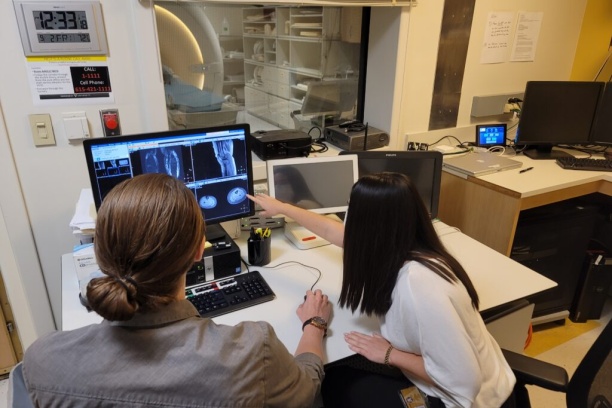The Master of Imaging Science program at Vanderbilt University School of Medicine addresses the growing recognition of imaging science as a distinct specialty in biomedical research and clinical care. It is a master's degree program that full-time students complete in 12 months.
Imaging technologies provide critical diagnostic and research functions in uncovering and solving health care mysteries through a variety of modalities including ultrasound technology, radiation technology (such as x-rays and CT scans), and MRI technologies. Students will learn the functions and uses behind various modalities used to allow physicians and patients to observe internal organs, detect cancers, monitor image-guided surgeries, and more.
Our unique MIS program aims to:
- Provide innovative and comprehensive education across the full range of biomedical imaging science at a national leader in health care and health sciences.
- Prepare graduates for leadership roles in applying imaging in academic, clinical, and industrial settings in health care and beyond.
For more information, click HERE
For any questions, please email mis.contact@vanderbilt.edu
Learning in Innovative Environments
Within the context of a leading medical research and teaching center and a dedicated Institute of Imaging Science, graduates of the master’s program in Imaging Science will train in both preclinical and clinical environments in order to:
- Develop the ability to implement technical advances in one or more specific imaging technologies, combining principles of physics, engineering, computer science, and mathematics to collect, produce, and analyze images.
- Understand the uses and practical limitations of the major imaging modalities in use today. They will understand the fundamental principles of image formation, contrast mechanisms, and image analysis for each modality.
Apply expertise in the use and interpretation of multiple imaging modalities in preclinical and/or clinical applications, as well as current research directions.
